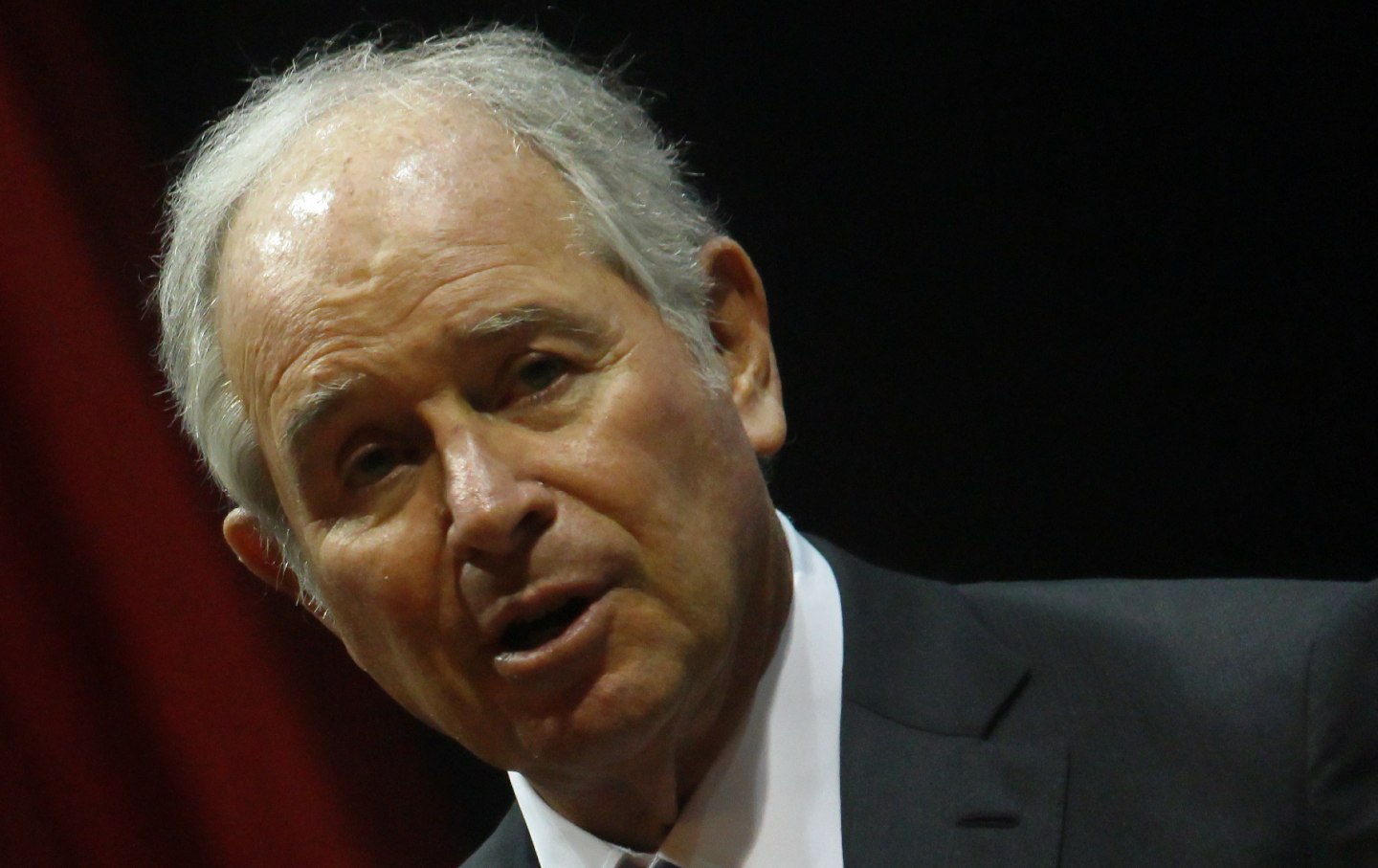Civic lessons won’t sway America’s oligarchs. Instead, we need forthright economic populism to bring them to heel.
While Donald Trump’s felony conviction for falsifying business documents is hurting him with independent voters, it has only increased his popularity with a demographic cohort that is much smaller in number—but still has an outsize role to play in election outcomes: the super-rich. Axios reports that a Morning Consult poll shows that 49 percent of independent voters think Trump should drop out of the presidential race because he is a felon. This strong negative result is already in evidence in polls showing that Trump’s persistent lead over rival Joe Biden has shrunk and the presidential race is now dead even.
But this bad news for Trump, the BBC reports, has been countered by another development: “Ultra-wealthy Republican donors are rallying behind former US President Donald Trump following his historic trial and criminal conviction.” Indeed, for some tycoons, Trump’s courtroom troubles are reasons for supporting him. For Shaun Maguire, a partner in the powerful Silicon Valley firm Sequoia Capital, Trump’s long list of indictments was a “radicalizing event.”
“Bluntly, that’s part of why I’m supporting him,” Maguire wrote in a long post on X (formerly known as Twitter) announcing a $300,000 donation to Trump’s campaign. “I believe our justice system is being weaponized against him.” Aside from Maguire, the BBC lists other extremely wealthy Trump supporters, including casino owner Miriam Adelson, hedge fund manager Bill Ackman, fracking pioneer Harold Hamm, and Blackstone Group CEO Steve Schwarzman. Some of these moguls, notably Schwarzman, had previously been critical of Trump for his instigation of an attack on the Capitol as part of scheme to overturn the 2020 election results. But in recent months, they and other members of the 1 percent have decided to put their money on Trump. As a result, Joe Biden’s once formidable financial lead over Donald Trump is rapidly shrinking. In the month of April—for the first time in this election cycle—Trump started raking in more money than Biden.
In response to the rich rallying to Trump, The Economist published a polemic by LinkedIn founder Reid Hoffman arguing that investors should realize that Trump’s return to the White House would undermine the rule of law, an essential prerequisite for capitalist health. Hoffman acknowledges the “lamentable” reality “that a growing number of America’s corporate and financial leaders are opening their wallets for Donald Trump.”
According to Hoffman, many of Trump’s well-heeled supporters are motivated by a mixture of authoritarianism, fear, and greed:
He and his ideological allies have been quite explicit: upon regaining power, they intend to corrupt the legal system to use the state against political opponents. Some American elites support this autocratic agenda because in such a Trumpist regime they expect to be the new oligarchs. Others fear that opposing Mr. Trump will bring retaliation, so seek safety by pledging loyalty.
Most conventionally, of course, there is the simple siren promise of a second Trump term’s lower corporate-tax rates and softer regulatory enforcement.
In other words, a significant portion of America’s economic elite are either autocrats, cowards, or so single-mindedly rapacious that they are indifferent to the survival of democracy. But if that’s the case, then nothing is less relevant than the type of civic lesson Hoffmann is presenting on the necessity of the rule of law. Trump’s wealthy supporters are not going to be convinced by the need to preserve democracy, since they are as inherently autocratic as Trump himself. Unlike Franklin Delano Roosevelt, Donald Trump will never be a traitor to his class. He is, in truth, an accurate embodiment of it.
Current Issue
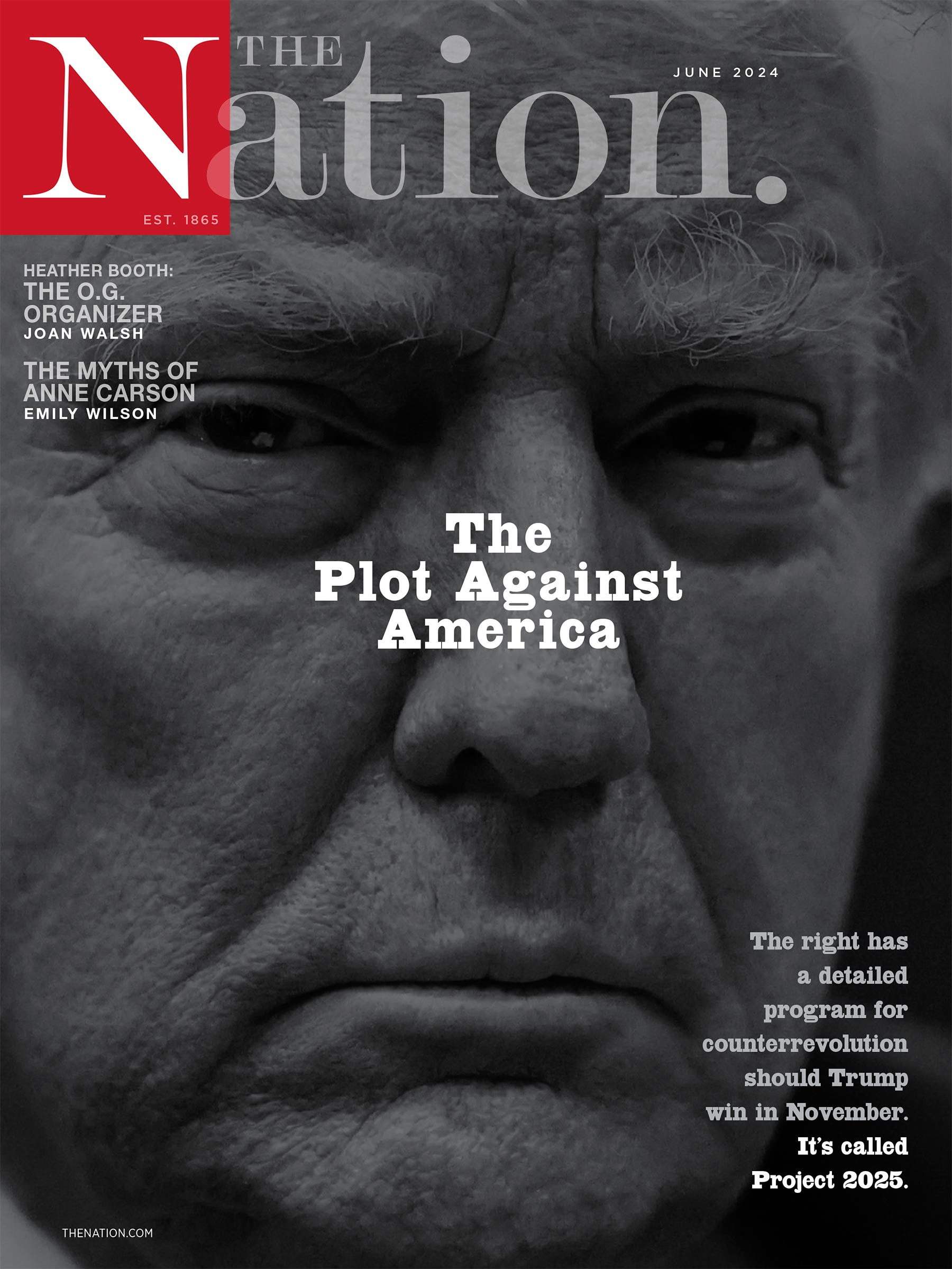
The autocratic tendencies of the American and global rich were well documented in a recent New Republic article by Ken Silverstein about a private WhatsApp group called Off Leash created by military contractor Erik Prince. The group consists of both business people and right-wing pundits—mostly in the United States, but also with a significant cluster in Israel and the United Arab Emirates as well as other countries. Silverstein received leaked conversations from Off Leash, which paint a dire picture of a cohort of militant and militarized aspiring autocrats.
According to Silverstein:
Prominent figures in the Off Leash crew are well known for their paleoconservative political views, but the private opinions expressed in the group chat are even more extreme and jarring than we normally see voiced publicly. Participants chirpily discussed the desirability of clamping down on democracy to deal with their enemies at home and regime change, bombings, assassinations, and covert action to take care of those abroad.
Even the wealthy who aren’t authoritarian have ample reason to support Trump. The 2017 tax cuts he pushed through were an enormous boon to them, since they were skewed toward top incomes. But these tax cuts are set to expire in 2025, unless reauthorized by the president and Congress. As Ronald Brownstein reports in The Atlantic, one of the most consequential differences between Donald Trump and Joe Biden is over these tax cuts. Brownstein notes, “The best estimates are that the Trump cuts have already cost the federal government about $2 trillion, and extending them in full for another decade starting in 2026 would reduce federal revenue by an additional $3 trillion to $3.5 trillion.” If we include the proposed taxes that Biden wants to push through and that he could achieve if he wins again with a Democratic Congress, the difference is even more stark, amounting to many trillions in taxes on the rich.
Trump’s return to the White House would literally allow the wealthiest Americans to pocket trillions that would otherwise be used for public services. This simple material fact is enough to explain why the propertied class won’t listen to civic lessons about the toxicity of Trump. They are obscenely rich and Trump will help them stay that way. In fact, he’ll allow them to become even richer than they’d otherwise be.
The fact that so many rich people are willing to abandon democracy for the sake of money they don’t even need is a great argument for economic populism. In the past, Democrats have tried to undermine Trump’s popularity by claiming that his wealth is phony. In 2016, Hillary Clinton boasted, “I love having the support of real billionaires.” Clinton touted her support from Warren Buffett and Michael Bloomberg (who was given pride of place at the Democratic National Convention in both 2016 and 2020).
But the sad truth is that Trump himself has the support of many real billionaires—and for good reason: He upholds their class interests. If the Democrats really want to rally popular support, they’d do well to mothball Bloomberg and run on good old-fashioned economic populism. Trump-loving plutocrats are a threat to democracy, and there is political capital to be reaped by highlighting that fact and promising to rein in their outsize economic power.
Dear reader,
I hope you enjoyed the article you just read. It’s just one of the many deeply-reported and boundary-pushing stories we publish everyday at The Nation. In a time of continued erosion of our fundamental rights and urgent global struggles for peace, independent journalism is now more vital than ever.
As a Nation reader, you are likely an engaged progressive who is passionate about bold ideas. I know I can count on you to help sustain our mission-driven journalism.
This month, we’re kicking off an ambitious Summer Fundraising Campaign with the goal of raising $15,000. With your support, we can continue to produce the hard-hitting journalism you rely on to cut through the noise of conservative, corporate media. Please, donate today.
A better world is out there—and we need your support to reach it.
Onwards,
Katrina vanden Heuvel
Editorial Director and Publisher, The Nation

More from
Jeet Heer 
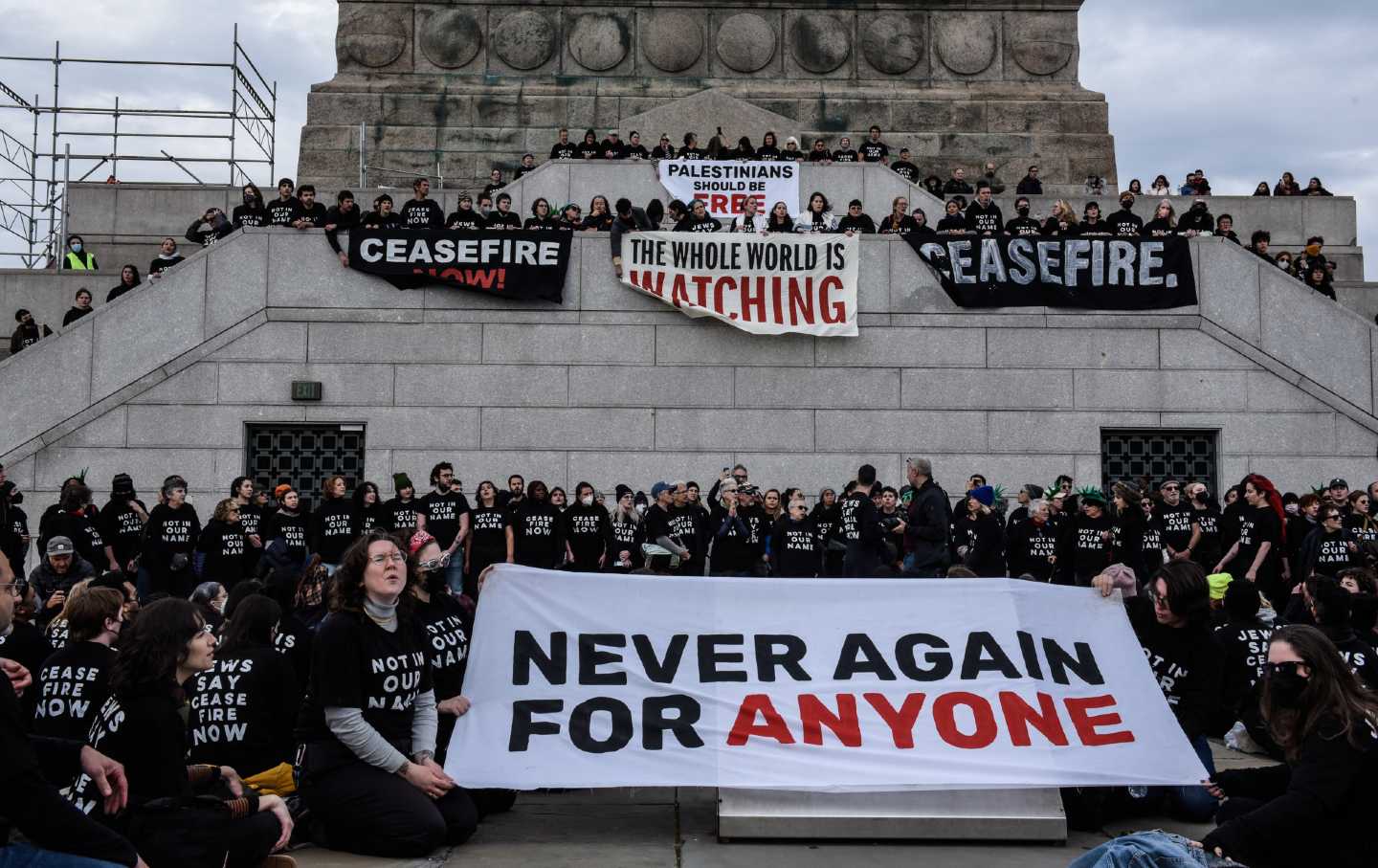
Pundits and politicians are elevating blatantly dishonest polls to shore up an indefensible war.
Jeet Heer
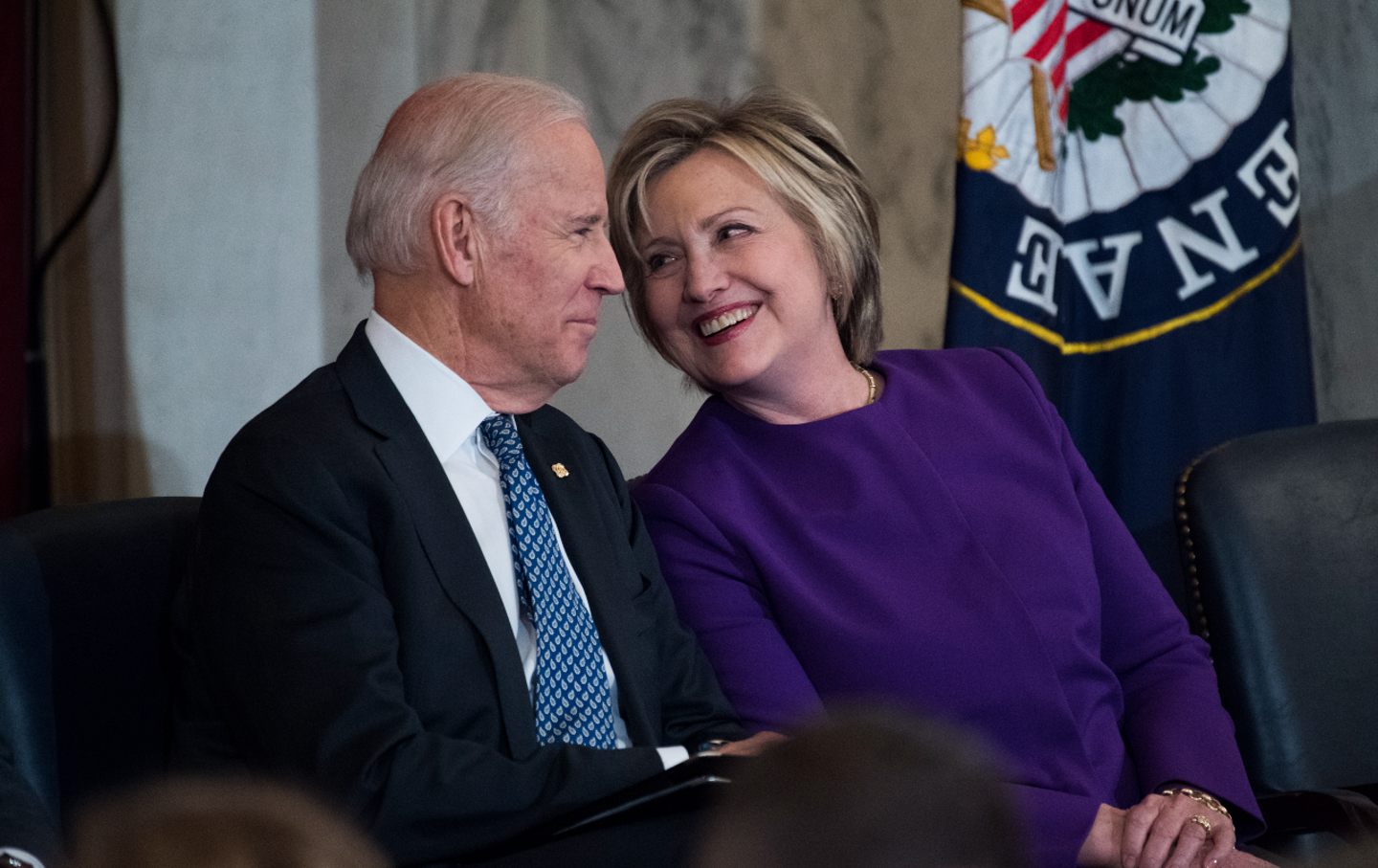
Hillary Clinton’s arrogance already lost one election. And if Joe Biden follows her example, it can easily cost another.
Column
/
Jeet Heer

Corporate consolidation means tired and increasingly unpopular sequels.
Jeet Heer
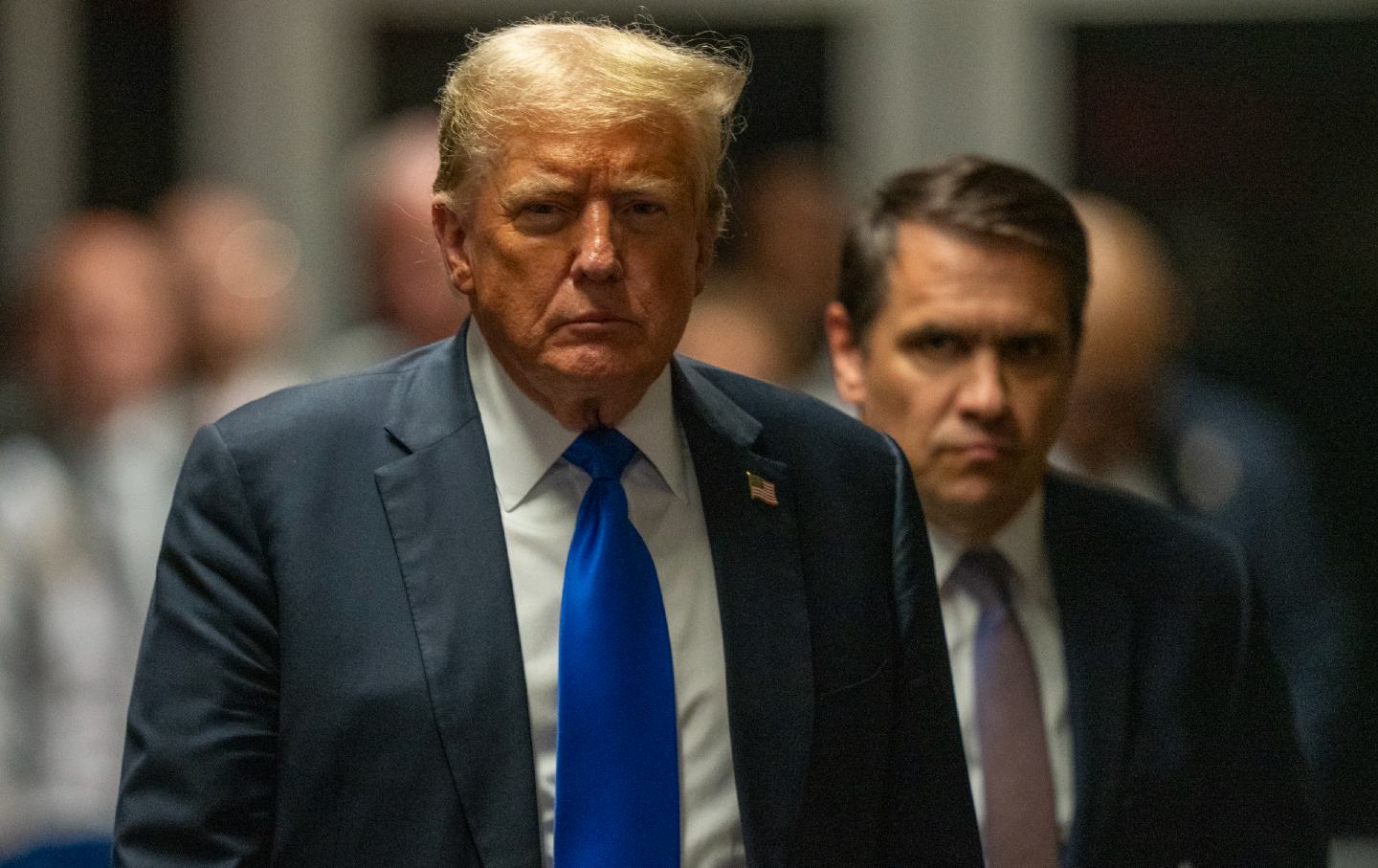
The Manhattan court case clarifies the stakes—and gives a chance for a Biden reboot.
Jeet Heer

How the state that aided terrorism on US soil has become an indispensable ally that the Biden administration is determined to placate at all costs.
Jeet Heer

Unlike Joe Biden, the former president benefits from international turmoil.
Jeet Heer
